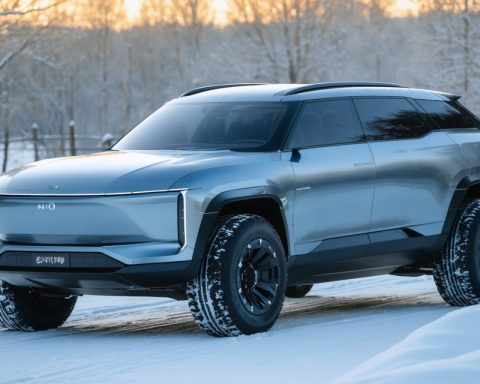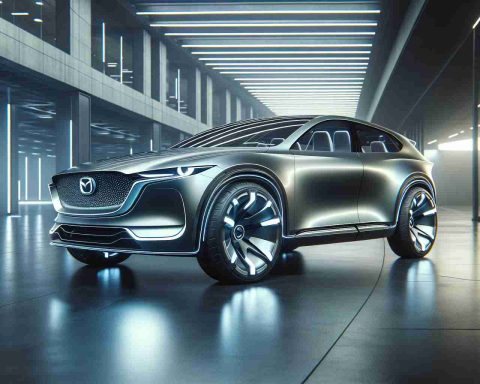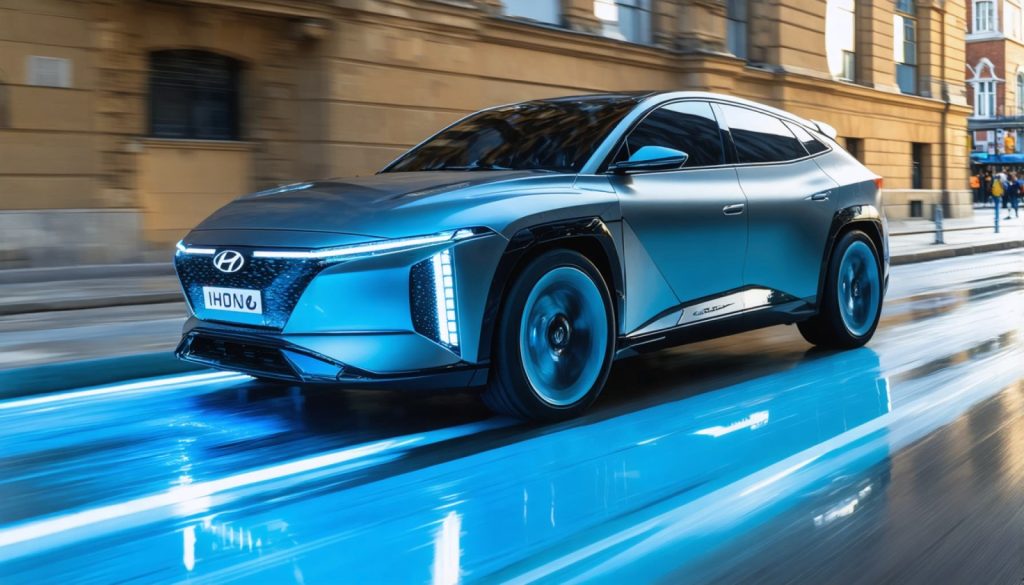- Porsche is spearheading a project to repurpose EV batteries for innovative applications, emphasizing sustainability and technological advancement.
- The initiative focuses on extracting critical materials like nickel, cobalt, manganese, and lithium through a mechanical shredding process, producing “black mass.”
- Approximately 65 tonnes of black mass are being produced, highlighting Porsche’s efforts in securing essential resources amid global supply challenges.
- The project aims to create high-purity materials for future EV battery production, aligning with Porsche’s performance standards.
- Porsche plans to use recycled materials in new battery cells, subjecting them to rigorous testing in upcoming models to support a circular supply chain.
- Barbara Frenkel, Executive Board Member for Procurement at Porsche, leads this initiative, positioning Porsche as a leader in sustainable automotive practices and regulatory compliance.
Porsche revs up its engines with a sweeping initiative that’s capturing the auto industry’s attention. A pioneering pilot project now illuminates how yesterday’s electric vehicle (EV) batteries can transform into tomorrow’s powerhouse innovations. In the heart of this endeavor lies a deep commitment to sustainability, technological ingenuity, and strategic foresight.
As the automotive world pivots to eco-friendly practices, the pressure to harness critical resources like nickel, cobalt, manganese, and lithium has intensified. Porsche, with its eye on a sustainable horizon, charges ahead by unlocking these raw materials through an intricate mechanical shredding process. The outcome? A substance evocatively named “black mass”—a valuable blend meant for high-tech refinement.
With the production of approximately 65 tonnes of this abundant black granulate, Porsche signals a significant stride toward securing precious materials amidst tightening global supplies. This metamorphosis of battery remnants into new beginnings showcases not just the transformation of materials but a profound shift in industry paradigms.
As layers of aluminum and copper are meticulously separated, the star of this process—refined “black mass”—comes into focus. This innovative approach promises high-purity elements essential for crafting future EV batteries, maintaining the performance standards synonymous with Porsche’s brand.
However, the journey doesn’t end at refinement. Porsche plans a crescendo of sustainability by fabricating battery cells infused with recycled components. The goal? Rigorous real-world testing in forthcoming models, paving the road to a more circular and eco-conscious supply chain.
Behind the helm of this initiative, Barbara Frenkel, Executive Board Member for Procurement at Porsche, manifests the company’s ambitious vision. This endeavor does more than reaffirm Porsche’s mantle as a sustainability vanguard; it positions the automaker as a strategic trailblazer within the looming EU regulatory landscape, demanding higher recycled content by 2031.
This ambitious leap not only fortifies Porsche’s commitment to responsible resource management but also mirrors a broader ambition—to drive forward a sustainable, resilient future for the automotive industry.
Porsche’s Revolutionary Leap into a Sustainable Automotive Future: What You Need to Know
Unpacking Porsche’s New Initiative: A Closer Look at EV Battery Recycling
Porsche is propelling the automotive industry into a sustainable future with an innovative pilot project focused on recycling electric vehicle (EV) batteries. This initiative not only aligns with global eco-friendly trends but also secures critical raw materials like nickel, cobalt, manganese, and lithium, essential for producing future EV batteries.
Revolutionary Recycling Process: The Details
– Mechanical Shredding: The process begins with mechanical shredding of old EV batteries, leading to the creation of a material called “black mass.”
– Separation of Materials: Aluminum and copper are separated meticulously, while the black mass is refined to extract high-purity elements.
– Future Applications: These refined materials are planned to be used in manufacturing new battery cells for future Porsche models, showcasing a full-circle approach to sustainability.
Benefits and Potential Challenges
Pros:
– Resource Recovery: Effectively recovers scarce and valuable raw materials, reducing dependency on virgin resources.
– Cost Efficiency: Recycling materials can potentially lower the costs associated with mining and processing fresh raw materials.
– Regulatory Compliance: Positions Porsche strategically within the evolving EU regulations, which will require higher recycled content in EV batteries by 2031.
Cons:
– Initial Investment: High initial costs for setting up recycling infrastructure and processes.
– Technological Hurdles: Ensuring the quality and performance of recycled materials can match that of newly mined resources is a continuing challenge.
Real-World Use Cases and Industry Trends
– Circular Economy: Other automakers may follow suit, pushing towards a model where used materials are continuously cycled back into production.
– Global Market Forecast: With the scarcity of battery materials expected to increase, integrated recycling processes will become crucial to sustaining EV expansion.
– Environmental Impact: By recycling rather than disposing of EV batteries, Porsche significantly contributes to reducing landfill waste and greenhouse gas emissions.
Expert Opinions
Industry experts applaud Porsche’s initiative, emphasizing its potential to reshape how materials are sourced and reused in the automotive sector. According to Porsche, this process could become a benchmark in achieving sustainability goals across the industry.
Strategic Insights for Automotive Manufacturers
– Adopt Similar Processes: Other manufacturers can implement their battery recycling strategies, thereby contributing to a sustainable future and regulatory compliance.
– Invest in R&D: Continued investment in research and development will aid in overcoming technological barriers in the recycling process.
– Collaborate Across Industries: Partnerships with tech firms and recycling specialists could enhance the efficiency and effectiveness of these initiatives.
Actionable Recommendations
– Support Recycling Initiatives: Consumers should support brands that prioritize sustainable practices, encouraging more companies to adopt similar strategies.
– Advocate for Policy Change: Engage with policymakers to champion regulations that incentivize recycling and sustainable resource use.
Conclusion
Porsche’s commitment to sustainability through innovative battery recycling paves the way for a resilient future in the automotive industry. As global supply chains shrink and environmental concerns rise, initiatives like this are not just advantageous but necessary. Engage with companies and policymakers to support these sustainable practices and drive the change towards a greener world.


















